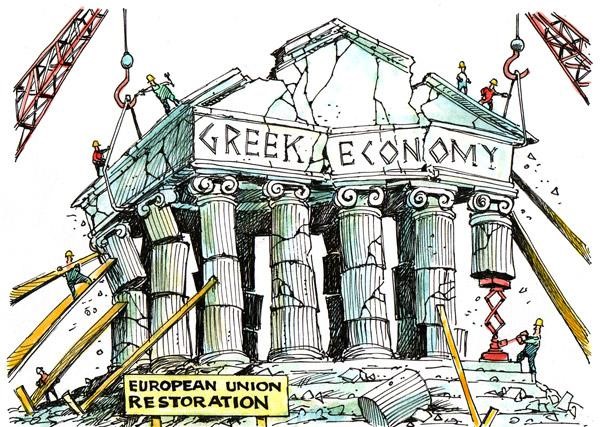Greece has decided to shut down banks and stock exchanges to avoid panic after creditors refused to extend the country’s bailout.
Greece moves towards defaulting on a €1.6 billion payment due to the IMF.
European Central Bank (ECB) has decided to freeze the funding it gives the banking system, rather than increasing it to cover a rise in withdrawals from worried depositors.
Greece’s Parliament approves referendum on creditors proposals for reforms in exchange for loans. This move stunned the international debt negotiators and the fellow Eurozone members countries have refused to extend the bailout programme.
Amid financial chaotic situation, the people in the streets of Greece queued outside banks to withdraw cash.
Greek Debt Crises
After the 2008 recession, Greece became the centre of Eurozone crises. In 2009, Greece announced that they have been understating their deficit for years.
Greece was shut down from borrowing in the financial markets and it started moving towards bankruptcy.
The International Monetary Fund, the European Central Bank and the European Commission issued the first of two international bailouts for Greece to avoid a disastrous situation.
Effect on the global financial system
Since the crises began in 2009-10 most of the financial institutions have sold their Greek bonds and other holdings, so they are not vulnerable to what happen in Greece.
Still, Greece may be linked to the world financial system in ways that may not be evident until it defaults on its debts or its banks collapse.





